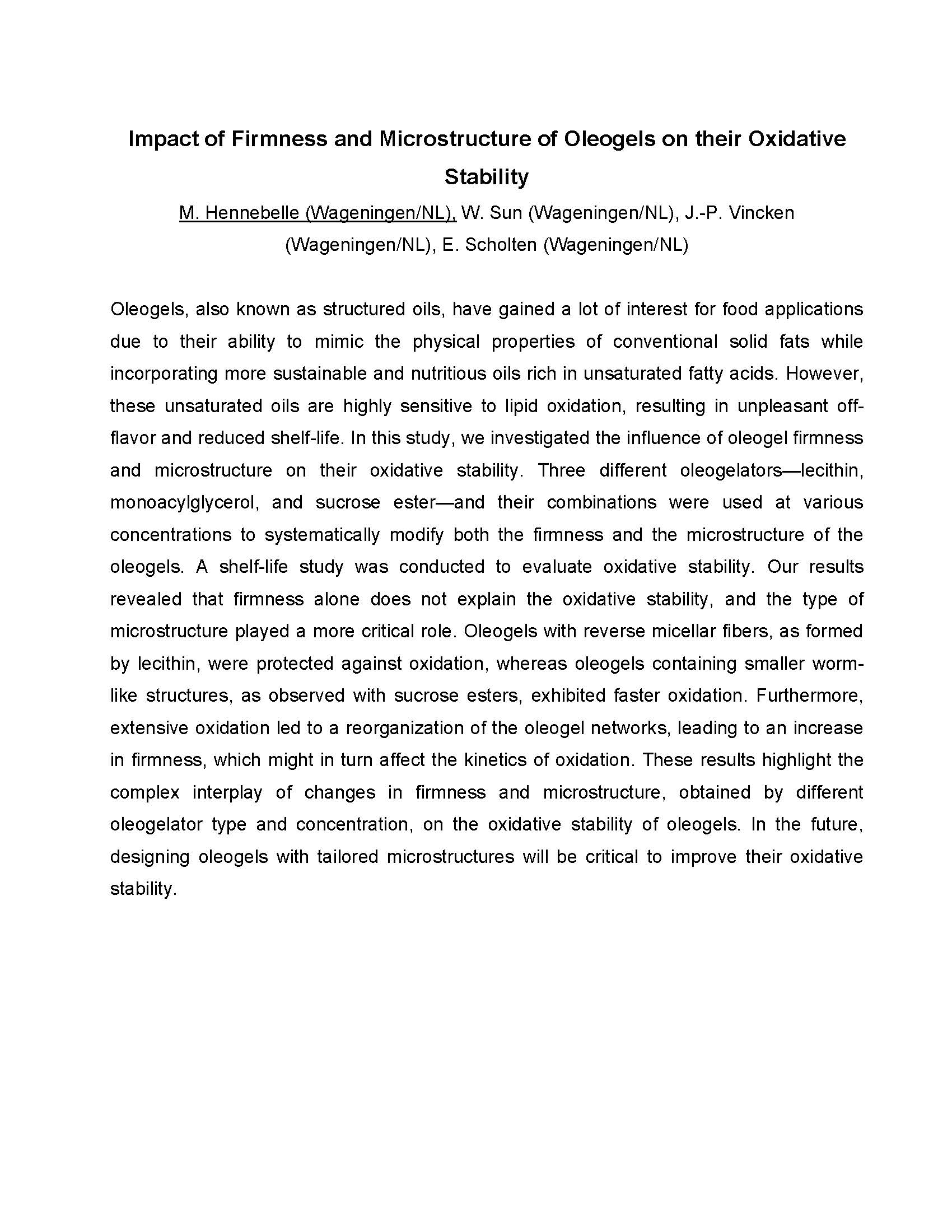Oleogels, also known as structured oils, have gained a lot of interest for food applications due to their ability to mimic the physical properties of conventional solid fats while incorporating more sustainable and nutritious oils rich in unsaturated fatty acids. However, these unsaturated oils are highly sensitive to lipid oxidation, resulting in unpleasant offflavor and reduced shelf-life. In this study, we investigated the influence of oleogel firmness and microstructure on their oxidative stability.
Three different oleogelators—lecithin, monoacylglycerol, and sucrose ester—and their combinations were used at various concentrations to systematically modify both the firmness and the microstructure of the oleogels. A shelf-life study was conducted to evaluate oxidative stability. Our results revealed that firmness alone does not explain the oxidative stability, and the type of microstructure played a more critical role. Oleogels with reverse micellar fibers, as formed by lecithin, were protected against oxidation, whereas oleogels containing smaller wormlike structures, as observed with sucrose esters, exhibited faster oxidation. Furthermore, extensive oxidation led to a reorganization of the oleogel networks, leading to an increase in firmness, which might in turn affect the kinetics of oxidation. These results highlight the complex interplay of changes in firmness and microstructure, obtained by different oleogelator type and concentration, on the oxidative stability of oleogels. In the future, designing oleogels with tailored microstructures will be critical to improve their oxidative stability.
